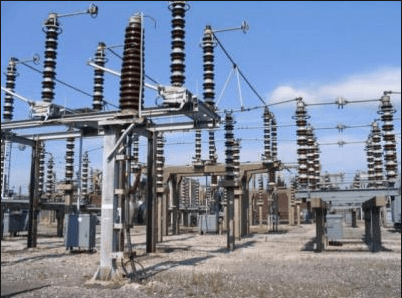Report says more work needed to strengthen independence of electricity in Africa
 Much work remains in strengthening regulatory independence in the electricity sector though majority of African countries have developed robust institutional frameworks for the regulation of their energy sectors, says the Electricity Regulatory Index for Africa (ERI) – a crucial new report by the African Development Bank.
Much work remains in strengthening regulatory independence in the electricity sector though majority of African countries have developed robust institutional frameworks for the regulation of their energy sectors, says the Electricity Regulatory Index for Africa (ERI) – a crucial new report by the African Development Bank.
The Report, released on the sidelines of the 2018 Africa Energy Forum (AEF) in Mauritius, available to the Ghana News Agency, measures the level of development of regulatory frameworks in 15 African countries and examines their impact on the performance of their respective electricity sectors.
ERI also identifies areas in which improvement is most needed in Ghana, Cameroon, Cote d’Ivoire, Gambia, Kenya, Lesotho, Malawi, Namibia, Nigeria, Senegal, South Africa, Tanzania, Togo, Uganda, and Zimbabwe.
Amadou Hott, Vice President, Power, Energy, climate and Green Growth Complex at the AfDB, said “the main goal with the ERI is to incite key stakeholders in the African power sector to address regulatory performance and the gaps identified in the study.”
The ERI is expected to become a benchmarking tool that will track progress made by African countries as they align the regulatory frameworks governing their electricity sectors with international standards and best practices.
The African Forum for Utilities Regulators (AFUR) described the Index as a useful tool for improving electricity regulation and pledged to work with the Bank to sustain the initiative.
Debbie Roets, Executive Secretary of AFUR said: “We are glad that the African Development Bank has indicated that it will produce new, updated Index results on an annual basis, and will seek to encourage more countries to participate in subsequent editions. AFUR will provide the needed support.”
The Index pointed to how the past two decades had witnessed a transformation of the electricity market in Africa following the gradual opening, liberalisation, and reform of national electricity markets.
It was observed that regulators have a fundamental role in attracting private investment into national energy and power assets. Investors seek transparency, predictability, and good governance in sectors in which they operate, all of which well-developed regulators are expected to provide.
Periodic evaluation of regulators as practiced in many developed countries is important as it enables early identification of problems or gaps so that corrective actions can be implemented as soon as possible.
“Significant progress has been made in each of the areas covered by the study. However, more efforts are required to facilitate the type of environment in which private sector actors would feel comfortable investing. The African Development Bank will work together with its partners in regional member countries to provide the support, advice and assistance required to align regulation in the energy sector to international best practice,” said Wale Shonibare, the Bank’s Director, Energy Financial Solutions, Policy and Regulation Department.
The Report noted: “On average, well developed electricity regulatory governance systems exist in all fifteen sample countries. However, there is room for improvement with respect to accountability and independence to align with international best practices often necessary to attract future investment into the sector.
“Although many sample countries had established the legal and institutional frameworks for electricity sector regulation, regulators are yet to build an adequate level of capacity and develop appropriate mechanisms to effectively carry out their mandates and make decisions under key aspects of regulatory substance.
“In spite of falling well short of international best practices, regulators in the sample countries have a moderately positive impact in the sector, especially when it comes to measures being instituted to promote energy access and enhance commercial quality of electricity to consumers; however on average, regulators faltered most with respect to instituting cost-reflective tariffs.”
Source: GNA
